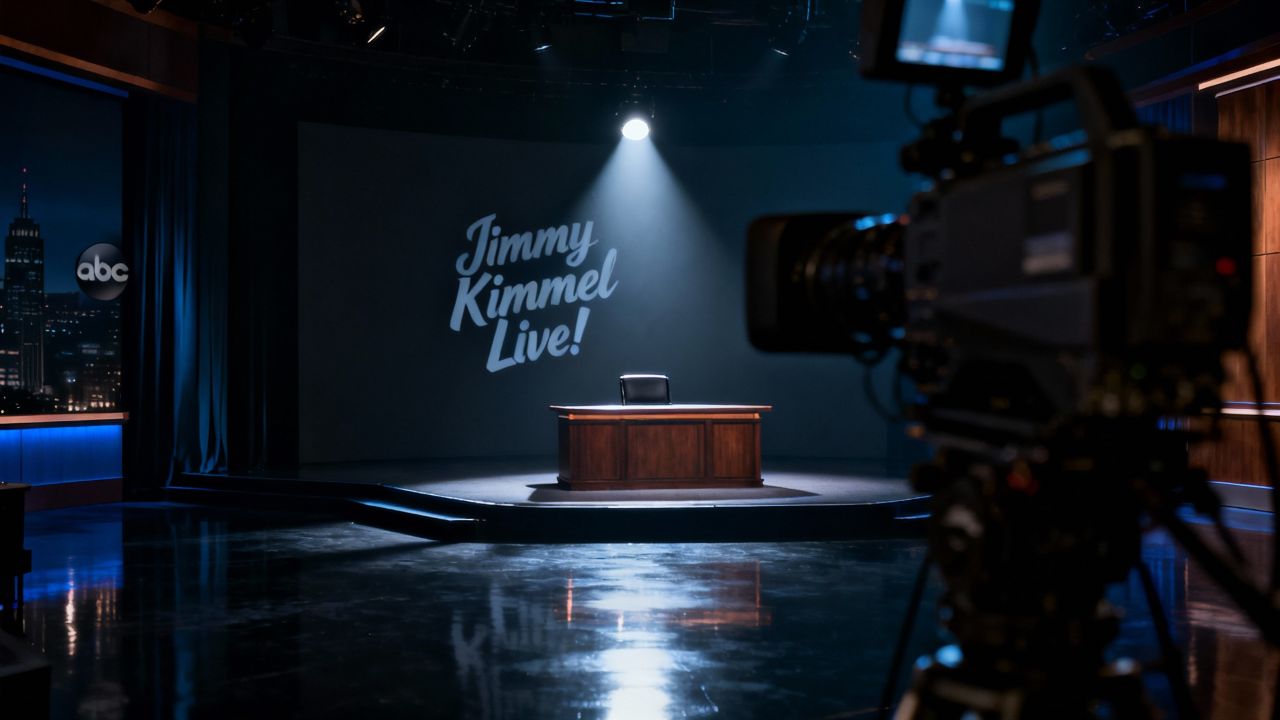
Disney has reversed its controversial decision to sideline Jimmy Kimmel Live!, announcing that the late-night host will return to air Tuesday—less than a week after the show was suspended under pressure from conservative outrage and veiled FCC threats.
A Sudden Reversal After a Political Firestorm
Disney suspended Kimmel last Wednesday following remarks about the fatal shooting of conservative activist Charlie Kirk. In his monologue, Kimmel accused MAGA supporters of twisting the narrative around the alleged killer, Tyler Robinson, calling them “desperate to score political points.” The comments went viral, igniting fury from Donald Trump, FCC chairman Brendan Carr, and conservative media giants Nexstar and Sinclair, both massive ABC affiliate owners.
By midweek, Carr floated that the FCC might consider license action if ABC failed to rein in Kimmel. Nexstar and Sinclair seized the opening, publicly preempting his show. Sinclair even demanded that Kimmel donate to Kirk’s organization, Turning Point USA, and apologize directly to the Kirk family before reinstatement. Disney caved, at least briefly, by pulling Kimmel indefinitely.
But the backlash was instantaneous. Major unions, late-night competitors, and more than 400 celebrities signed an ACLU-led letter blasting the suspension as a First Amendment betrayal. Meryl Streep, Tom Hanks, Jennifer Aniston, Robert De Niro, and Ben Affleck joined the chorus, while Howard Stern canceled his Disney+ subscription in protest. Even Republicans like Ted Cruz accused Carr of “mob boss” intimidation tactics.
Faced with a revolt, Disney announced Monday that Jimmy Kimmel Live! would return after “thoughtful conversations” with Kimmel.
Free Speech on Life Support
This saga was never really about Jimmy Kimmel’s joke, it was a stress test for American free speech under a Trump-packed FCC. Brendan Carr’s brazen suggestion that ABC risked its licenses if it didn’t punish Kimmel is a textbook case of unconstitutional “jawboning.” A government regulator, amplifying political resentment, leaned on a private company to discipline a critic.
As The Guardian detailed, the suspension was not simply a voluntary corporate decision; it was coerced by the threat of state power channeled through broadcast license approval processes, at a moment when Nexstar was seeking an FCC-approved merger. That chilling tactic is precisely what the First Amendment was designed to guard against.
The fact that Disney initially folded shows how vulnerable even the most powerful media corporations are to government intimidation when business interests like affiliate relations and merger approvals are on the line.
Kimmel Returns, But the Stakes Remain
When Kimmel returns Tuesday, the stage isn’t just ABC’s El Capitan Theatre—it’s the front line of an escalating fight over speech, corporate cowardice, and authoritarian creep. According to reporting, Kimmel is unlikely to issue the apology demanded by conservative stakeholders, though he will address the uproar in his monologue.
But the larger story isn’t whether Jimmy Kimmel apologizes—it’s whether the entertainment industry, unions, and audiences push back hard enough to prevent a repeat performance of FCC-backed censorship. If the Trump administration can jawbone one late-night host off the air, what stops them from targeting others?
The historical parallels are obvious: the McCarthy hearings, when artists and broadcasters were forced into silence under threat of blacklisting. The difference now is that the pressure is laundered through corporate self-interest and regulatory dealmaking rather than congressional subpoenas.
Why This Matters
This isn’t about whether you like Jimmy Kimmel or his jokes. It’s about precedent. If Disney’s first instinct is to yield to government pressure, the space for dissent in mainstream media shrinks. Every comedian, every late-night monologue, every satirical riff becomes a potential liability subject to political vendettas.
And while Kimmel is back—for now—Sinclair still vows not to carry his show in its ABC affiliate markets until he bends the knee. That means viewers in key regions, including Washington, D.C., may still see a blackout. For millions of Americans, the screen silence itself becomes the message.
America’s late-night comics may traffic in laughter, but tonight the stakes feel darker: Will corporate America defend democratic free speech, or will it continue to act as a proxy enforcer for government power brokers?
Kimmel is just one man in a suit behind a desk. The real story is whether we still have a culture that allows suits behind desks to mock the powerful without fear of state-sanctioned silence.
